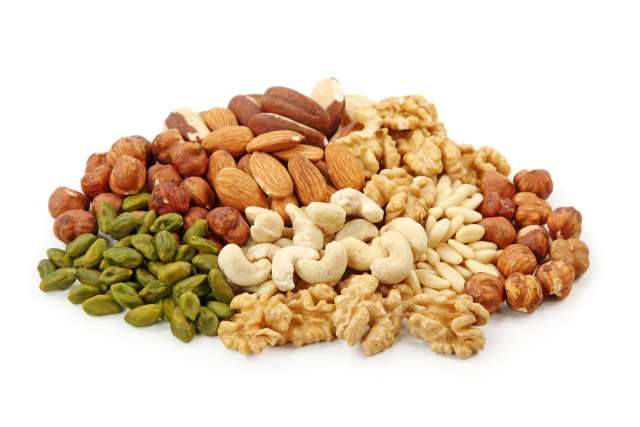As a long-time chicken keeper, I’m often asked about feeding nuts to chickens. I’ll admit, when I first started raising my backyard flock, I was uncertain about this topic too. Today, I’m excited to share my experience and knowledge about feeding nuts to chickens safely.
Are Nuts Safe for Chickens?
The short answer is yes, chickens can eat most nuts, and they’re actually quite nutritious for them. I’ve found that my hens absolutely love pecking at various nuts, especially when they’re broken into smaller pieces. However, it’s crucial to understand that nuts should be treated as treats rather than a primary food source.
The Nutritional Benefits of Nuts for Chickens
Let’s look at almonds as an example of what nuts can offer your chickens. They’re packed with impressive nutrients:
• Protein: 21g per 100g
• Fat: 49g per 100g
• Carbohydrates: 22g per 100g
These numbers might seem high, particularly the fat content, but that’s exactly why nuts should be offered in moderation. I’ve noticed that my chickens get an energy boost when they eat nuts, which is especially beneficial during colder months.
Safe Nuts for Chickens
Through my years of chicken keeping, I’ve found these nuts to be particularly safe and beneficial:
1. Almonds (unsalted)
2. Walnuts (chopped)
3. Pecans
4. Pistachios (shell removed)
5. Cashews (unsalted)
Preparation and Serving Tips
I always make sure to prepare nuts properly before feeding them to my chickens. Raw nuts are generally safe, but they should be unsalted and unroasted. I’ve found that crushing or chopping the nuts makes them easier for chickens to eat and helps prevent choking hazards.
Common Misconceptions About Feeding Nuts to Chickens
One misconception I often hear is that nuts will make chickens fat. While nuts are high in fat, when fed as an occasional treat (about 10% of their diet), they won’t cause weight issues. I’ve actually found that the protein in nuts helps support healthy egg production.
Important Considerations and Warnings
I can’t stress enough the importance of moderation when feeding nuts to chickens. Too many nuts can lead to obesity and affect egg laying. I typically offer nuts as treats just 2-3 times per week, and only in small amounts.
Also, avoid giving chickens:
• Salted or seasoned nuts
• Moldy nuts
• Nuts in their shells (except for softer shells like peanuts)
• Bitter almonds (they contain toxic compounds)
The Role of Nuts in Winter Feeding
During winter months, I’ve found that nuts can be particularly beneficial. The high fat content helps chickens maintain their body temperature when it’s cold. I often increase nut treats slightly during winter, but still maintain moderation.
Signs Your Chickens Are Getting Too Many Nuts
Over my years of chicken keeping, I’ve learned to watch for signs that indicate I’m overfeeding nuts. These include reduced egg laying, weight gain, and less interest in their regular feed. If you notice any of these signs, it’s time to cut back on the nuts.
Integrating Nuts into Your Chickens’ Diet
I’ve developed a simple approach to feeding nuts to my flock. I typically scatter a small handful of crushed nuts in their run area, which encourages natural foraging behavior. This works well for my dozen chickens, but you’ll need to adjust the amount based on your flock size.
Alternative Protein Sources
While nuts are a great source of protein, I don’t rely on them exclusively. I also incorporate other protein-rich treats like:
• Mealworms
• Sunflower seeds
• Cricket treats
• Cooked eggs
• Fresh greens
Final Thoughts
In my experience, nuts can be a healthy and enjoyable treat for chickens when offered responsibly. They’re particularly valuable during winter months and molting seasons when chickens need extra protein and energy. The key

